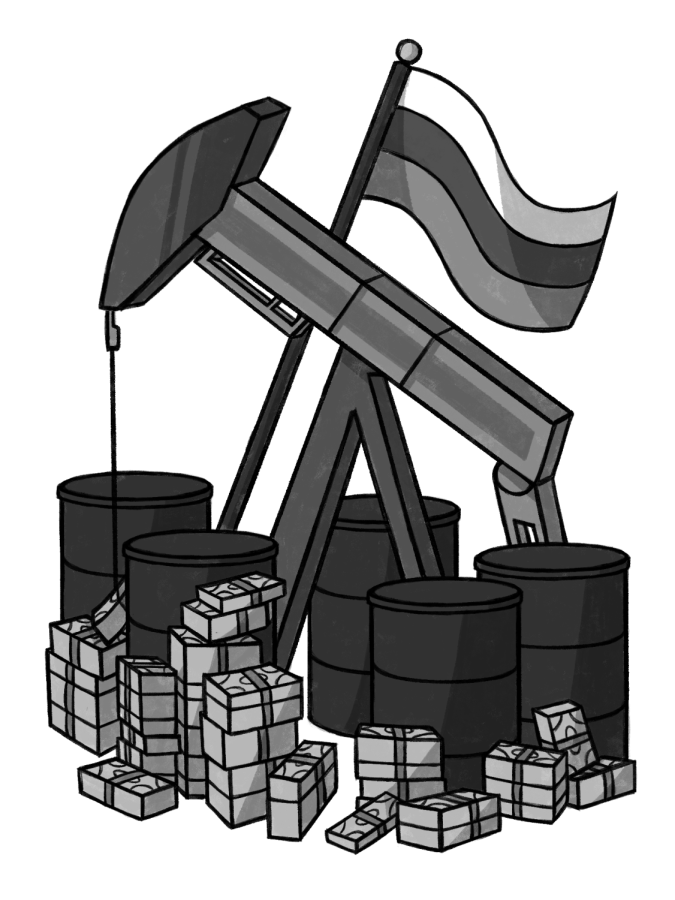OPINION: Oil, geopolitics and famine
Predictions are often incorrect. When the Soviet Union fell in the early 1990s, Francis Fukuyama wrote “The End of History and the Last Man,” emphasizing that the political and economical climate would never significantly change and that liberal democracy was humanity’s last evolution in society. While the book did spark discourse among philosophers and commentators, it would be proved wrong on many occasions, with factors including the rise of China’s global influence and the Great Recession.
Russia’s fall from a global superpower to a struggling petrostate has led to an Eastern European conflict that some in the media are calling the beginning of WWIII. The Ukrainian discovery of oil and natural gas reserves in the Black Sea has threatened Russia’s weak monopoly of oil, responsible for keeping its economy intact. Their struggle is aided – and contrasted – by their ally, the People’s Republic of China. In comparison, China has a gross domestic product, population and population density 14, 11 and 18 times greater than Russia, respectively. Despite the large gap in prosperity, Russia and China’s relations remain cordial. A recent border dispute between the two nations was settled, with reports confirming the PRC’s request for Russia to delay the Ukrainian invasion, verifying the strong relationship between each other.
Around the world, Moscow has spent years cultivating political and economical allies to benefit their own economy and gain more power on the world stage. It has included itself in the Organization of Petroleum Exporting Countries, an oil cooperative between 13 nations, and Brazil, Russia, India, China, and South Africa, or BRICS, an alliance between several countries. Russia’s connections have allowed the nation to prosper in their economy, as prior to the continuation of the Russo-Ukrainian War, it had strong relations with many oil-rich Middle-Eastern countries, with its influence reaching South American nations, such as Venezuela.
The International Energy Agency reported that, in 2021, the “total 155 billion cubic meters of gas imported from Russia accounted for around 45 percent of the EU’s gas imports and almost 40 percent of its total gas consumption.” In the short term, Europe’s dependence on Russian gas will still be present in many nations, as it serves as one of the only fuel sources available. Perhaps, in the next 50 years, if Europe continues on their fast-tracked goals, there could be a 25 to 50 percent increase on green energy, phasing out their heavy dependence on the oil-rich enclaves of the Middle East and Russia.
Since COVID-19, the global markets have struggled in various sectors, from food to technology industries. Various reports from several news agencies indicate that the African continent could soon get a food shortage from the ongoing Russo-Ukrainian war, which may force lesser alternatives to keep households filled. In the technology industry, the chip shortage may be exacerbated due to the halted production of neon, a gas used to produce integrated circuits. While the Russo-Ukrainian War may not snowball into a larger conflict, it will, at this time, leave multiple nations and companies reeling from energy, tech and food shortages.
In the Eastern world, the coming times are worrying. The examples of the continuously volatile situations should concern those on the other side of the world. In the next 50 years, there may be conflicts which can snowball into another global war.


